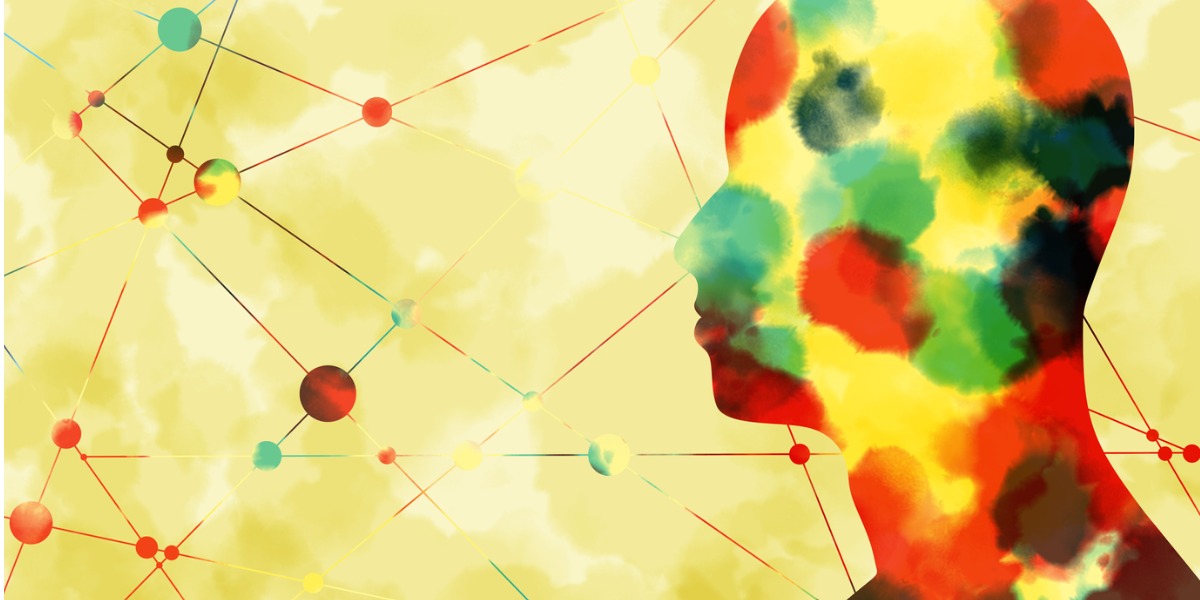Many people diagnosed with depressive disorders wonder if there’s a genetic cause for depression. The symptoms they experience every day lead them to ask this question:
“Why do I feel this way?”
If you have depression, or you know someone who has, this question sounds familiar. If symptoms such as pervasive sadness, low energy, and recurrent thoughts of death disrupt your peace of mind every day, it’s completely understandable to want to know the cause of your distress.
Unfortunately, simple answers aren’t always easy to find.
Researchers spend considerable time and effort attempting to identify the causes of depressive disorders and other mental health concerns. In most cases, the closest they come is to note that a variety of internal (genetic) and external (environmental) factors influence risk for developing a mental illness.
In recent years, advances in genetic research offer the hope that breakthrough insights may lead to a more in-depth understanding of depressive disorders and prompt the development of more effective methods of treatment.
Some sources suggest that this type of progress is imminent. Others push back on the idea that experts are close to identifying a definitive genetic cause for depression. In this post, we’ll take a look at both sides of this ongoing debate.
The Scope of the Problem
Depression is one of the most common mental health concerns in the United States and throughout the world.
The National Institute of Mental Health (NIMH) reports the following about the scope and impact of depressive disorders:
- About 21 million U.S. adults (or about 8.4% of the population aged 18 and above) had at least one major depressive episode in 2020.
- More than two-thirds of adults with major depression (14.8 million) experienced symptoms that were intense enough to qualify as severe impairment as scored on the Sheehan Disability Scale.
- The prevalence of major depressive disorder is considerably higher among adult women (10.5%) than among adult men (6.2%).
- About 4.1 million adolescents in the U.S. (or about 17% of the population in the 12-17 age range) had a major depressive episode in 2020.
- About 70% of these young people (2.9 million) reported severe impairment.
Expanding the scope of the problem beyond the borders of the United States, the World Health Organization (WHO) estimates that about 280 million people across the globe have a depressive disorder.
Untreated depression is associated with a wide range of negative outcomes, including myriad physical health problems, substance abuse and addiction, lost productivity, and suicide.
The Promise of Genetic Research
Considering how many people are affected by depression – and given the potential devastation that this disorder can inflict – it is clear that improved treatment techniques could have tremendous global significance.
One area of research that shows considerable promise in this effort is genetic science.
In May 2021, a team that included researchers with the U.S. Department of Veterans Affairs (VA), Yale University School of Medicine, and University of California-San Diego (UCSD) published a massive genome-wide association study (GWAS) in the journal Nature Neuroscience.
A YaleNews article that came out the same day included the following information about the size of the study:
- The GWAS involved genetic data from 1.2 million subjects.
- The data from these subjects came from three sources: the VA’s Million Veteran Program, the UK Biobank in the United Kingdom, and the Finnish biobank FinnGen.
- The genetic data from these three sources was compared to data from 1.3 million volunteers who had provided samples to the consumer genetic service 23andMe.
The research team that evaluated this data found:
- 178 genetic risk loci for major depressive disorder — Each risk loci refers to the region where a certain gene is found on a chromosome.
- 223 independently significant single nucleotide polymorphisms (SNPs) – An SNP is a minor genetic variation. There are about 10 million SNPs in the human genome.
“We examined genetic correlations between depression GWAS and other external phenotypes, largely confirming and strengthening previous observations,” the research team wrote. “We showed substantial enrichments for several brain regions, such as hypothalamus and frontal cortex, known to be important for depression.”
The researchers described their study as “the largest genetic analysis of depression to date,” and noted that their research identified 77 more genetic risk loci than found in the second-largest study.
Potential Limitations of Genetic Research
The GWAS that discussed in the previous section yielded an enormous amount of information. It will take time before researchers fully understand the ramifications.
In the meantime, at least one expert questions if this abundance of data will lead to meaningful changes in how experts understand and treat depression.
In his January 2023 article in the journal Molecular Psychiatry, UCLA psychiatry professor Johnathan Flint described research into major depressive disorder as “one of the success stories of modern genetics.” Yet in the same article, he questioned if this research has been effective at identifying a potential genetic cause of major depressive disorder (MDD).
One of the problems with studies such as the GWAS from the previous section, Flint wrote, is that they have not established consistent criteria for MDD:
- Some studies have relied on self-reporting via relatively open-ended questions.
- Other studies requested information from subjects about certain symptoms of depression (which may or may not have been caused by major depressive disorder).
- Still other studies refer to International Classification of Disease (ICD) codes in patient records.
Flint also claimed that shortcomings in the following areas may be hampering genetic research into the causes of major depressive disorder:
- Collecting environmental information about study subjects
- Determining how genetics contribute to the recurrence of depressive symptoms
- Developing “deep symptomatic profiles” of study subjects
“For MDD we need new cohorts, more complex, deeper phenotypes, combined with the use of existing data sets,” he wrote, “but most crucially we need ideas about the nature of the condition, so that we ask and answer the right clinical questions.”
A Complex Challenge
The concerns that Flint expressed are similar to what the authors of a July 2018 report in the journal Frontiers in Psychiatry described.
Early in that report, the authors noted that there is strong evidence that genetics can play a role in determining who does and does not develop a depressive disorder:
- A meta-analysis of studies involving twins indicates that depression has a 37% heritability rate.
- Family studies suggest that, compared to the general public, the risk of depression is two to three times higher among people who have a parent with a depressive disorder.
- Heritability appears to have a stronger influence in cases that involve particularly severe symptoms of depression.
However, as Flint noted in his article, the authors of the July 2018 report described the difficulty of identifying specific genes clearly linked to depression.
“It is likely that the predisposition to [depressive disorders] is determined by the coordinated action of many genes and their interaction with each other and with diverse environmental factors,” the authors wrote. “It is also likely that each gene by itself makes a relatively small contribution to the pathogenesis of the disease.”
Douglas F. Levinson, M.D., also addressed this topic in an article on the Stanford Medicine website.
“We don’t yet know how many genes are involved in depression, but it is very doubtful that any one gene causes depression in any large number of people,” Dr. Levinson wrote. “So no one simply ‘inherits’ depression from their mother or father. Each person inherits a unique combination of genes from their mother and father, and certain combinations can predispose to a particular illness.”
Implications for Treatment
Even if the mutation of a single gene causes a disease, that doesn’t mean the condition has a simple cure. For example, even though Tay-Sachs disease, cystic fibrosis, sickle cell anemia, and Huntington’s disease are single-gene disorders, they remain chronic conditions that cause great harm.
In the case of depression, the genetic complexity revealed in recent research suggests that a combined effort that incorporates medication, therapy, and education is the optimal treatment approach.
As researchers uncover more information about potential genetic influences, this will hopefully result in more targeted medications and point toward more effective therapies, which can enhance care for the millions of people who have developed this disorder.
Get Help Today
If major depressive disorder or another complex mental health concern has undermined your ability to live a productive and satisfying life, Crownview Psychiatric Institute may have the solutions you are seeking.
Features of care at our center in southern California include personalized planning, an array of therapies and adjunct services, life- and work-skills education, and wraparound support — all provided in a dynamic, community-like environment.
To learn more about our programming or to schedule an intake assessment, please visit our Admissions page or call us today.


 Gianna Melendez
Gianna Melendez Jodie Dahl, CpHT
Jodie Dahl, CpHT